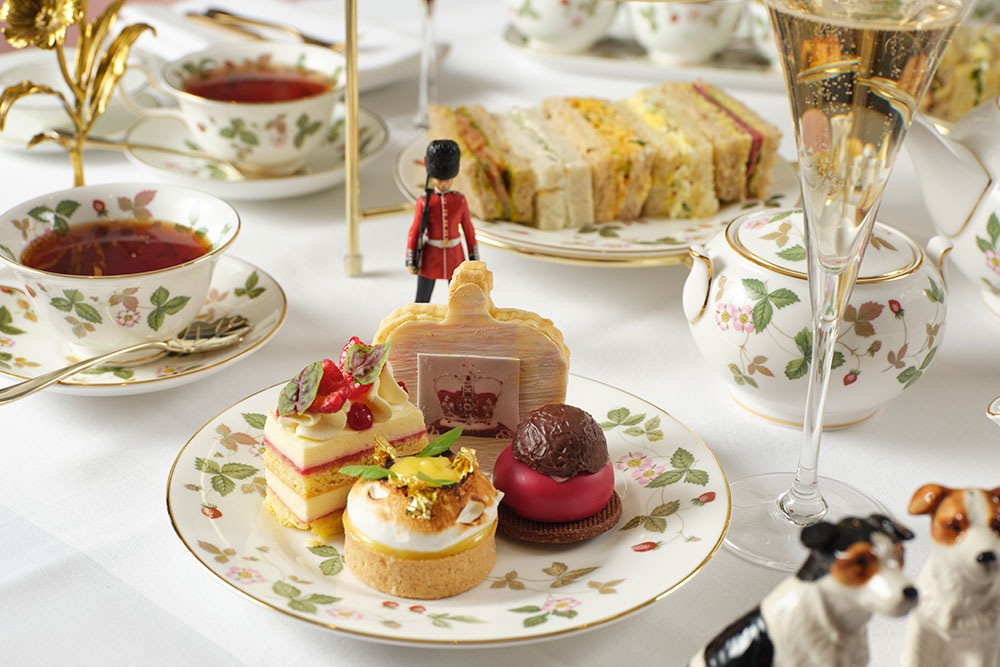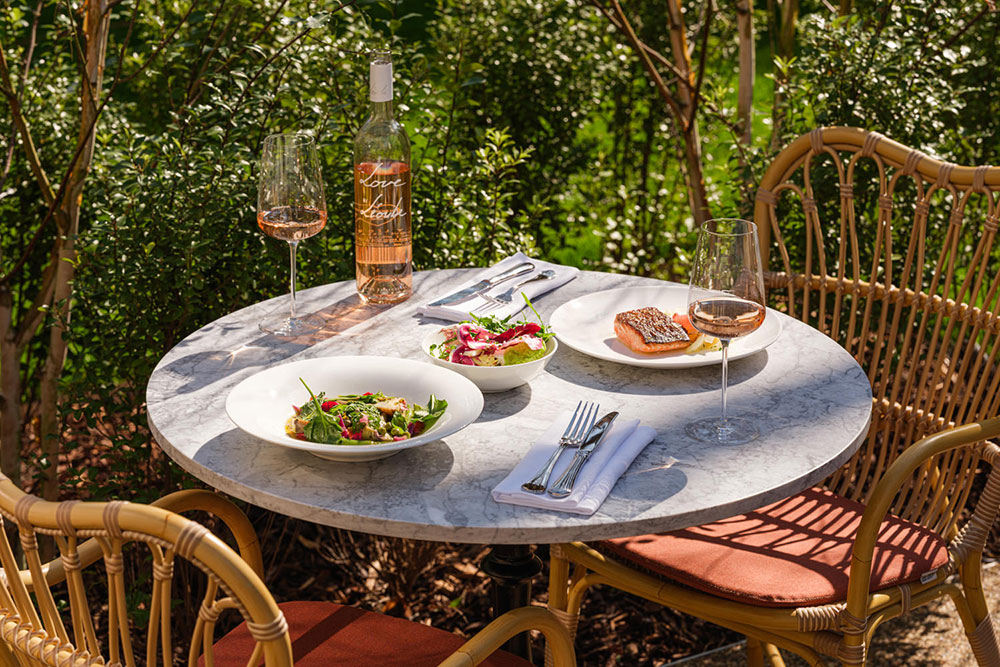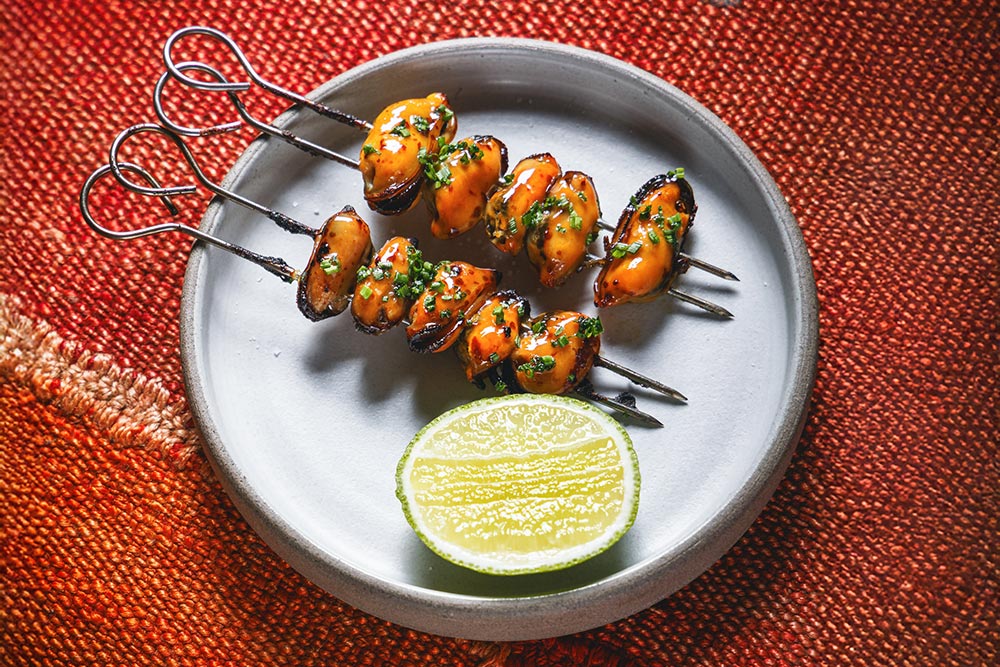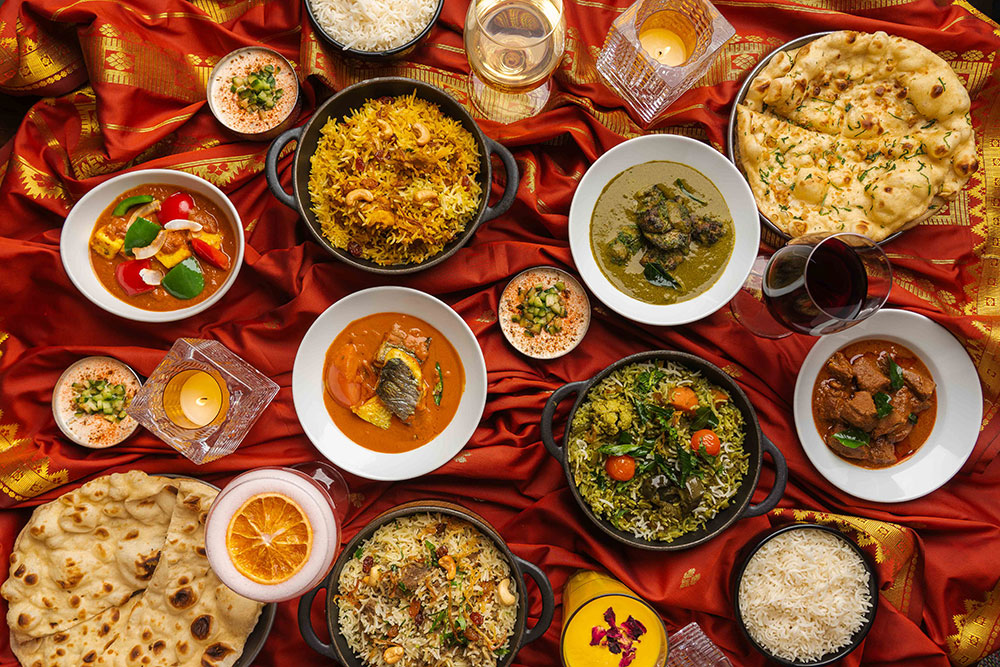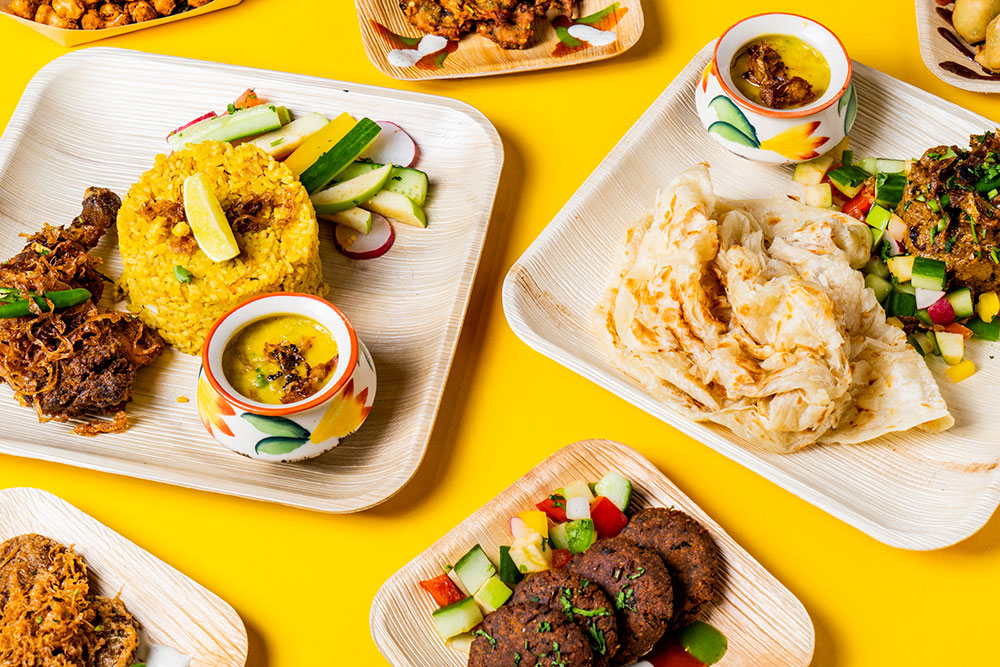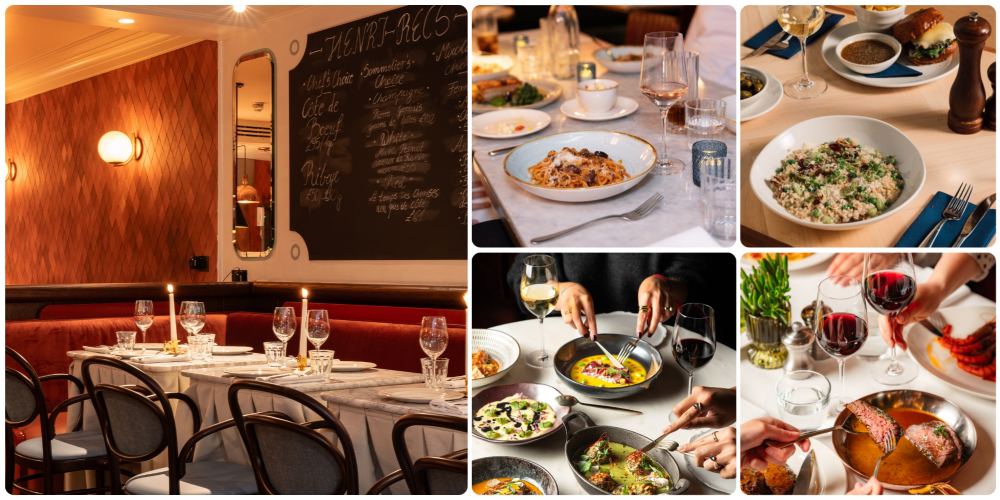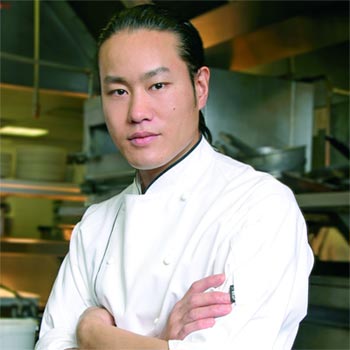
Jun Tanaka, head chef of London restaurant Pearl is a familiar face to food programme fans, particularly to any Saturday Kitchen viewers who’ll know that until very recently Jun was second only to Gennaro Contaldo in the omelette challenge.
Born in America to Japanese parents, Jun entered the London restaurant industry when he was 19 working for the Roux brothers at Le Gavroche. Since then he’s built up a seriously impressive cv through the kitchens at Chez Nico, The Capital, The Square, Les Saveurs, Harveys and The Oak Room. In 2008 his restaurant at the Renaissance London Chancery Court Hotel Pearl achieved three AA rosettes for Jun’s cooking which ‘comes alive in seasonal dishes displaying great flavour combinations and skilful execution.’ Hot Dinners caught up with Jun to talk about life in London’s hardest kitchens.
HD: We heard you got your first job with a little help from your Dad. Can you explain what happened?
JT: It was when I was 19. My dad was a businessman and took a lot of his clients out to all the restaurants in London, so he'd eaten in every single two or three Michelin-starred restaurant in London. When it came to choosing my first job, I asked him which one was his favourite and he gave me a list of four – Harvey’s which was Marco Pierre White, La Tante Claire – Pierre Koffman, Le Gavroche – Roux Brothers and Chez Nico.
I wrote a letter saying I was looking for work experience as a student and could I have a job. One wrote back – it was Le Gavroche – and they said yes, come in for a chat. I had an interview and they gave me a job which was absolutely amazing. At the time, I was 19 and didn’t really know about restaurants so much, so I didn’t appreciate what a great opportunity that was. It had three Michelin stars, and was regarded as the best restaurant in Britain.
Should you have been terrified?
Oh yeah, completely. I can remember the very first day because all I had was the chef whites from college which was completely inappropriate. Chefs wear either checked or black trousers, a hat (normally a skull cap) and a blue apron – but I had a trilby hat, lab coat and white trousers. I bought a white pair of clogs just so I colour-coordinated and a scarf. I didn’t have any knives, so I nicked my mum’s kitchen knives and turned up on my first day looking like a complete idiot.
They say ignorance is bliss and that’s so true, because if I’d appreciated what an idiot I looked like, then I wouldn’t have gone back the next day.
Did you get the mickey taken out of you?
No, they were kind because they knew I was a student and just looking for work experience – they treated me really well.
Wasn’t Le Gavroche a hard place for a first job?
Extremely - it was a real eye opener. But I don’t think I got as much out of it as I should have. My knowledge of cooking was so basic, we were cooking at a three-Michelin star level and a lot of it just went over my head. I did the canapé and veg sections and was always looked over by a chef de partie. I learned discipline and the realities of a kitchen very, very quickly .
I remember going in around six in the morning and at about four or five in the afternoon actually asking one of the chefs, ‘When does the afternoon shift come?’ and they said ‘We’re it – we work all day’. That’s something I learned that first week and it prepared me for the rest of my career.
So if your father was giving you that list of restaurants today, who do you think would be on it?
The equivalent today would be Alain Ducasse at the Dorchester, Gordon Ramsay at the Royal Hospital Road, The Square, Pied a Terre and Le Gavroche, Hibiscus – that’s two Michelin stars - and The Ledbury.
...from winning Masterchef to running your own restaurant is a canyon – it really is. Because it’s not just about cooking and having a name that attracts customers, it’s running a business which is a completely different animal.
So yours was a pretty unusual way into the restaurant business. What do you think of peole who are catapulted in through programmes like Masterchef?
Those programmes are great and incredibly popular. You know, one of these days I’d love to own my own restaurant, but I know the realities of actually doing and achieving that. I do find it quite surprising that these amateur cooks, they’re great cooks but from winning Masterchef to running your own restaurant is a canyon – it really is. Because it’s not just about cooking and having a name that attracts customers, it’s running a business which is a completely different animal. It’s not enough just to cook well, it really isn’t.
You said you’d like to own your own place. When do you think that will happen for you?
I can’t put a timeline on it because I work for the hotel and if I was to say I’m going to open my own place next year and they read that then...well every chef’s dream is to have his own restaurant.
It’s about opportunity, meeting the right people – because financially, no chef can do it on his own. You might meet someone you really click with and you both have the same vision of the kind of style of restaurant you want and if that all matches up, well you don’t know when that could happen. You could go out one day to some foodie event, meet someone there and it’s having all those pieces fall into place.
Jamie Oliver recently went on record saying he doesn’t approve of chefs who ‘swear at their staff’ and we hear you’ve got a very calm kitchen. What’s your attitude to this?
I’ve worked in some of the hardest kitchens in Britain and although that was a great experience, I didn’t love every minute of it. It’s hard – but then that’s what you expect when you apply for those jobs. You know it’s going to be like that. If you can’t put up with it, then don’t apply.
But the thing is, although it’s great experience, looked good on my cv and pushed my career in the right direction, I can remember thinking to myself that this isn’t the kind of environment I want when I run my own kitchen. The personality of the restaurant and atmosphere in the kitchen is completely a reflection of the chef. If I’m going to spend 17 hours a day in a confined space with a group of chefs I want to have a nice atmosphere.
I can remember waking up some days absolutely dreading going into work – that used to be on a regular basis, a sense of nervousness, fear all the kind of emotions which aren’t particularly constructive. And I thought well I don’t want the chefs who work for me to feel that. I want them to be excited about the food we do.
It’s all about hiring the right people as well. It’s not just enough to try and create that environment yourself – because there’s only so much you can do – it’s important to hire the right people. There’s 10 people working in a space where there’s barely a metre between them and with that many personalities in such a small environment, things are going to kick off. But I always ask people to bring their problems directly to me. Plus, they have to respect the people in a higher position than you – that’s an absolute must.
If things go wrong, I do lose my temper, but it happens very infrequently and I really don’t agree with abusing staff in the kitchen.
...if you asked (Marco Pierre White) in the days at Harvey’s whether he’d do anything like that, he’d have thrown you out of the kitchen.
You worked with Marco Pierre White in his heyday – what do you think of the fact that he’s now advertising Turkey Twizzlers?
It’s entirely up to him what he does, but if you asked him in the days at Harvey’s whether he’d do anything like that, he’d have thrown you out of the kitchen. But then he was 27, had two Michelin stars and people’s priorities change. That’s life isn’t it? If you have kids or get married, your priorities shift. So ultimately he thinks of things differently now than 20 years ago.
I don’t particularly think it is good for him – but I don’t know the reasons why he’s doing it.
If you google Jun Tanaka one of the things that pops up is your position on the Saturday Kitchen omelette challenge. You were second-fastest until very recently.
Paul Rankin knocked me down to third place. But I saw that omelette, there was no way that was a bloody omelette. That sounds bitter actually!
I learned how to make an omelette when I was at Le Gavroche. They used to do the catering for a boutique hotel next door and do room service breakfast for them. It was my job – being the apprentice in the kitchen, to do breakfast and one day the great Albert Roux was staying in the hotel. He ordered an omelette for breakfast and obviously I knew it was for him and spent a lot of time and care on this particular omelette and sent it up. I was quite proud of it.
And then about 15 minutes later, he comes down, looks around and says ‘Who made that omelette?’ I said ‘I did, chef. ‘ And he said, ‘That tasted like rat’s piss. After that I had someone teach me how to make the perfect omelette and I never forgot, but he never ordered another one from me, so I never got the chance to show I’d improved.
What do you think of this year’s World’s 50 Best Restaurants list? Is it an accurate reflection of the UK restaurant scene?
There aren’t many UK restaurants in the Top 50, which I think is a good thing because then it doesn’t look biased. I’ve eaten at Noma – three chefs and I ate there last year – and we came out of it saying hands-down it was the best meal we’d ever eaten in our lives. We didn’t know it was going to get the top spot this year and we’ve eaten out a lot, but there was consensus that it was the best.
I’m so glad I went last year, because it’ll be impossible to get a table now. That’s what it does for you – it’s taken off into this global award. I remember when it first started, the first year was London-centric and now it’s gone completely global, but they don’t represent Asia as much as they’d want to.
What about eating out in London? Where do you most enjoy going at the moment?
I love Polpo, purely because it’s very simple, you don’t have to book, you just walk in and there’s a buzzy atmosphere. It’s well-priced so I enjoy eating there. I haven’t been to a fine-dining restaurant for a little while. I guess at the moment, when I go out , I want to be in a casual environment.
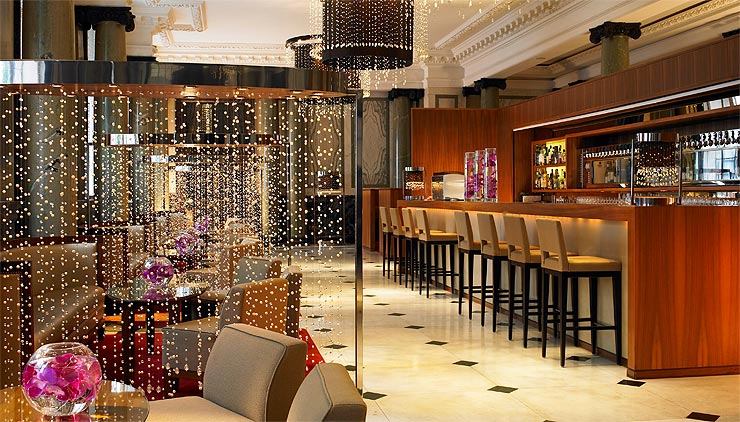
We’re going to be seeing you at Taste of London this year?
Yes, as foodie events go it’s my favourite of the year, because you’re outdoors – it’s a beautiful setting in Regent’s Park, when the weather’s great you can’t beat it. You’ve got all the other chefs you can catch up with, we never see each other because we work so much, so it’s really social. I look forward to it. This year, I’m doing demonstrations rather than taking the restaurant there.
Are there any other projects you’re working on?
I am working on something but we’re not talking about it ‘till a bit later on. It’s for the London Restaurant Festival – it’s going to be brilliant. If we can pull it off – because there’s a lot of work involved – it will be completely unique to London.
Pearl offers two set lunchtime menus at £26 for two-courses and £29 for three-course. Alternatively, in the evening, you can try the five-course Tasting Menu which is £70 without wine, £90 with beer and £120 with wines to accompany each course.

